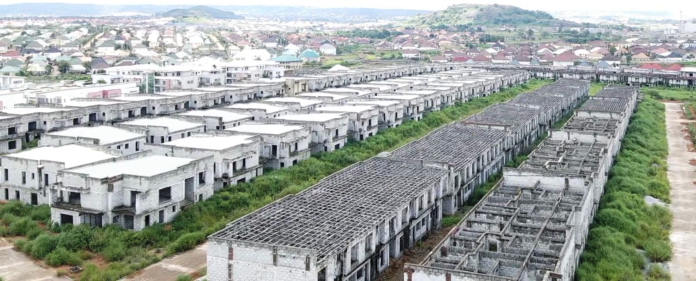Why We Concealed Owner Of Seized 753-duplex Abuja Estate’s Identity — EFCC
The Economic and Financial Crimes Commission has defended its decision to withhold the identity of the owner of a recently recovered estate, which it described as the largest single asset recovery in its history.
The EFCC had on Monday announced the recovery of 753 duplexes and other apartments on Plot 109 Cadastral Zone C09, Lokogoma District, Abuja.
The commission, however, faced criticism from many Nigerians for not disclosing the identity of the owner of the asset.
Among the critics is the former presidential candidate of the African Action Congress, Omoyele Sowore, who accused the EFCC of being afraid of confronting “big thieves.”
Reacting in a statement on Tuesday by the EFCC’s Head of Media and Publicity, Dele Oyewale, the anti-graft agency stated that its actions were guided by the legal framework governing forfeiture proceedings and a commitment to professionalism.
Oyewale explained that the forfeiture of the estate followed civil proceedings under Section 17 of the Advance Fee Fraud Act. This legal provision allows for action-in-rem—a process targeting property rather than individuals—particularly in cases of unclaimed assets.
He said, “The allegation of a cover-up of the identity of the promoters of the Estate stands logic on the head in the sense that the proceedings for the forfeiture of the Estate were in line with Section 17 of the Advance Fee Fraud Act, which is a civil proceeding that allows for action-in-rem rather than action-in-personam.
“The latter allows legal actions against a property and not an individual, especially in a situation of an unclaimed property. This Act allows you to take up a forfeiture proceeding against a chattel who is not a juristic person. This is exactly what the Commission did in respect of the Estate. Individual in situations of unclaimed assets.”
Oyewale disclosed that actionable intelligence led to investigations into the estate.
During the process, he said a company initially flagged as the likely owner denied any links to the property after public notices were published in leading national newspapers.
“On the basis of this, the commission approached the court for an order of final forfeiture which Justice Jude Onwuegbuzie of the Federal Capital Territory, FCT, High Court granted on Monday, December 2, 2024,” he added.
Despite securing the court order, Oyewale noted that its criminal investigation into the matter remains ongoing, stating that revealing the names of individuals without direct evidence connecting them to the property’s title documents would be premature and unprofessional.
“The substantive criminal investigation on the matter continues. It will be unprofessional of the EFCC to go to town by mentioning names of individuals whose identities were not directly linked to any title document of the properties,” Oyewale stated.
The commission reiterated its commitment to impartiality and its “no sacred cow” policy, assuring the public that it remains steadfast in its mission to fight corruption.
“We are unwavering in our approach to every matter, and together we will make Nigeria greater,” he said.





